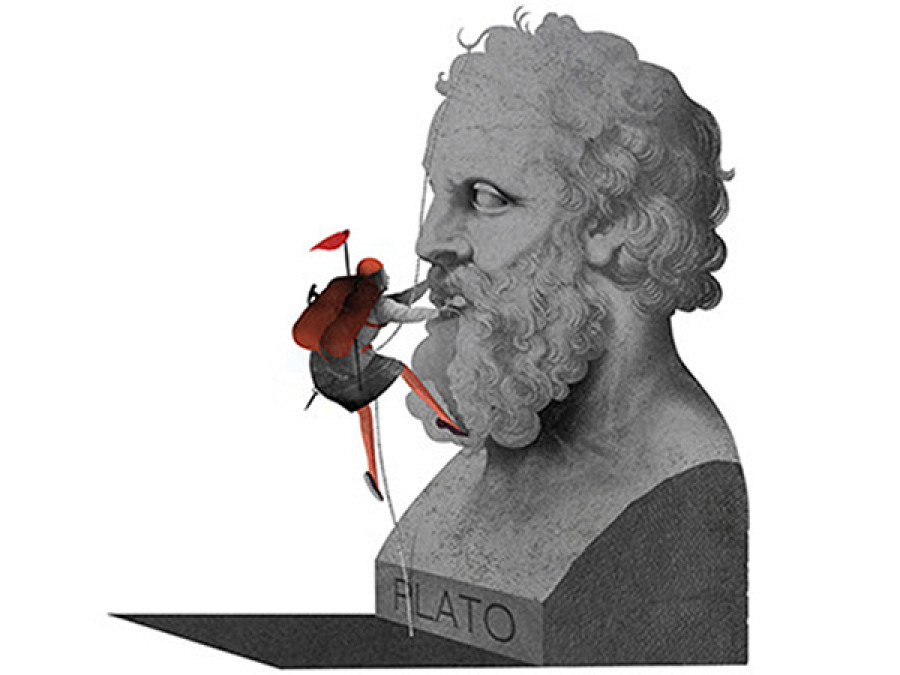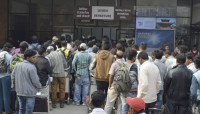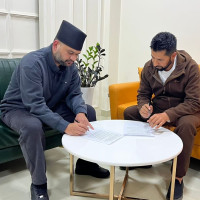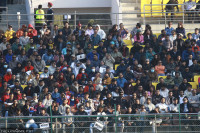Opinion
Philosophers and kings
Four scholars on the federalism debate with strongly-held opinions that are worth encapsulating.
Deepak Thapa
Few philosophers, no kings
Notwithstanding the fact that every absolute ruler down the ages has believed that they embody the pinnacle of the fusion of political power and wisdom—and there are many examples of elected leaders who harbour similar illusions—the philosopher king has no place in a democratic society, particularly in today’s world where pluralism is the order of the day. Save for perhaps Baburam Bhattarai, thankfully none of our leading political lights even presume to philosophise, although there are those who sometimes try to pass off recitation of Sanskrit shlokas learnt by rote as evidence of erudition. Sadly, no one seems to have any use for philosophers either.
By philosopher, I do not mean those versed in subjects such as logic or metaphysics, since that would hardly qualify them to gauge the mood of the people, but in the general sense of individuals who have gained a deeper understanding of our society through years of scholarly contemplation and public engagement. As we try to make sense of what is going on with Nepal’s politics, there is no dearth of commentators, your truly included, who contribute their two bits day in, day out. But there are some whose opinions carry far more weight for the insights and the wisdom they bring, and in the course of the political turmoil of the past one month, four such scholars waded into the debate with strongly-held opinions that I believe are worth encapsulating here, albeit in the briefest of briefs.
Four scholars
Political scientists Lok Raj Baral and Krishna Khanal are identified with the ‘democratic’ camp, although they would bristle at being labelled ‘Congress-ites’, while geographer Pitamber Sharma and sociologist Chaitanya Mishra represent
the Marxist strain in Nepal’s
intellectual thinking. In that sense, the ‘balance’ so sought after in Nepal is evenly matched, but that quibble aside, they provide perspectives that we as a nation could benefit greatly from.
Starting with the mundane, Sharma believes that none of our current leaders has contributed positively to constitution-drafting, “Baburam Bhattarai had initially displayed some seriousness but that has dissipated by now. It seems like Deuba is waiting for his turn (to become prime minister). Prime Minister Sushil Koirala never expresses any clear views. KP Oli is limited to witticisms.” Baral rues the fact that none of the parties follow their stated ideologies: “The NC is not socialist, the UML is not Leninist-Marxist [sic], and the Maoists are not Maoist.”
On the failure to come up with a constitution, the two political scientists seem quite unruffled. “There is no need to be alarmed that the constitution was not ready by January 22. We still have three more years,” writes Khanal. “That was a self-imposed deadline so it did not carry any constitutional or legal weight,” says Baral. “But that was not wrong in itself. The parties wanted to expedite the constitution-drafting process. Three four extra months will not be a big deal as Nepal is at a critical juncture. Republicanism, inclusion, and federalism have all become national agendas, so it would be unwise to try to ignore these crucial changes and move ahead.”
Khanal believes that the parties were woefully unprepared for the mammoth task they had set for themselves with the election of the Constituent Assembly in 2008, “Constitution drafting was inducted into a process which was witnessing ‘adventurism’ by the Maoists in the first CA and a complete lack of preparation by the Nepali Congress-UML dispirited after the elections results.” Sharma expresses disappointment at what the CA has turned into, “We had thought the CA members elected proportionately would discuss issues and find common ground despite their differences. Instead, leaders simply pronounce their wishes. They come with pre-determined positions that they present in language meant to denigrate others. They believe that is where their greatness lies.”
On federalism, Khanal says that there is near-agreement on almost all other sticking points, such as form of government and electoral system, and outstanding issues can be decided by a majority vote. But there are major differences on federalism and these differences are limited not only to the parties. “That is why the CA cannot and should not decide on federalism by majority alone.”
Mishra says that there has been no serious discussion and debate on federalism so far, and that it has to be about granting authority to three or four different levels. Baral says, “The CA was supposed to provide for restructuring of the state, which means federalism. Kathmandu-centric politics will not work anymore. It is not just about decentralisation it is about taking power directly to the provinces and the local level.” Sharma concurs with this view and says that main leaders do not want to grant power all the way to the lowest levels, “In their understanding, state restructuring means the re-creation of yesterday’s Nepal.”
Cross-purposes
A major problem appears to be everyone talking at cross-purposes. Khanal has provided a rather apt analogy, “Our constitution could not determine the nature of the game. Some of our CA members and parties are holding cricket bats while others have hockey sticks. Some have called it a game of dandi-biyo and others are gleefully engaged in wrestling. Every party has their own rules. How can a constitution be drafted in such a situation?”
Sharma argues for recognising why we are going for federalism in the first place, “I am a student of development. States running north to south are good but will only address the issue of capability not of identity.” This problem appears particularly acute on the issue of ‘ethnic states’. According to Sharma again, we are stuck on the question of naming the states. He says there is extremism
on both sides, resulting from the Maoist conception of ‘prior rights’ to the titular group of the proposed state. “Who is asking for ethnic states? An ethnic state is one in which one group is given preferential status at the cost of other groups. The loudest voice of ethnicity is coming from Limbuwan but their documents simply ask for a state of their own. There can be no prior rights in a democracy.”
Says Baral, “I do not think that creating provinces on the bases identified by the previous CA will lead to disintegration of the nation. Rather, if you try to accommodate all sections of the population, that will be the basis of national integration. But if you alienate some sections of the population, it can lead to a rise in extremism tomorrow.” Mishra says that he has no problem with just the naming of a state or province after a particular group, but he cautions that there could be ethnic claims made in the future and that can lead to complications.
Khanal is at his most pessimistic when he writes: “If this is the trend, the bitter reality is that the constitution will not be ready even in 30 years.” Philosophers are wrong sometimes, and that can be our fondest hope, to find our own rest from ills.




 7.12°C Kathmandu
7.12°C Kathmandu









%20(1).jpg&w=300&height=200)

